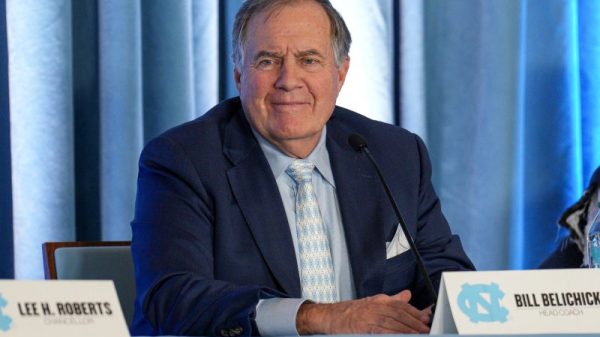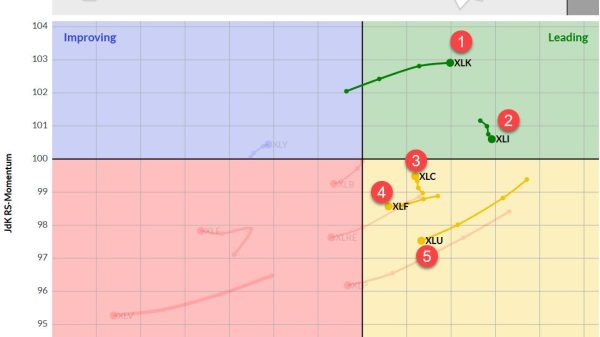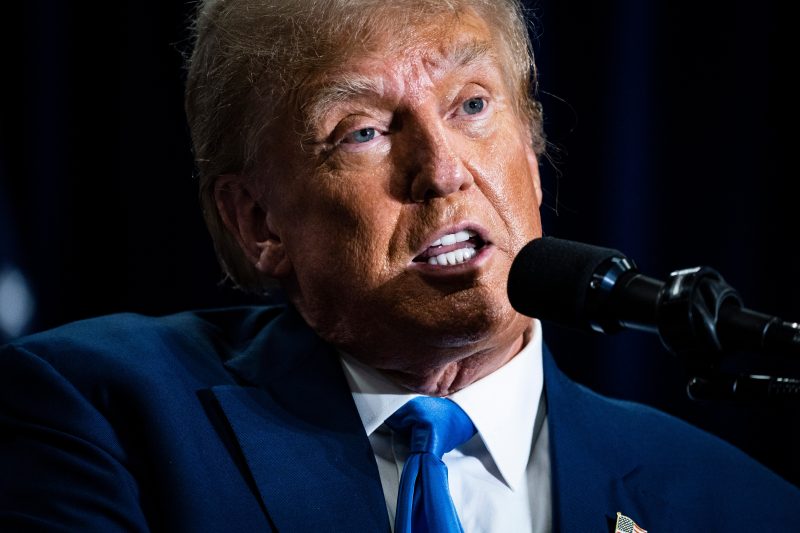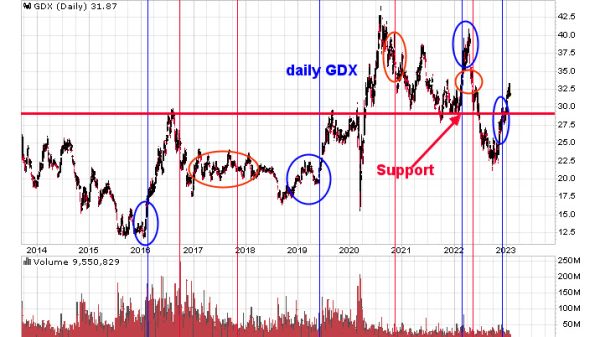In two courtrooms 900 miles apart, judges next week will begin to weigh an unprecedented and historic question: Is former president Donald Trump eligible to run for office again given his alleged role in the Jan. 6, 2021, riot at the U.S. Capitol?
Starting on Monday in Denver, a week-long hearing featuring witnesses and legal scholars will explore whether Jan. 6 qualified as an insurrection, which could bar Trump from the ballot in Colorado. On Thursday, the Minnesota Supreme Court will hear arguments about whether an obscure part of the Constitution might keep Trump off the ballot there. In coming weeks, courts around the country might hold similar proceedings.
The legal strategy, pursued by an unusual mix of conservatives and liberals, is unlike any tried before against a candidate for president. Legal experts are deeply divided on the merit of the theory, but even its backers acknowledge they face stiff challenges.
The effort hinges on an arcane provision of the 14th Amendment of the Constitution, which was adopted after the Civil War and is renowned for protecting Americans’ civil rights. The amendment’s lesser-known Section 3 states that people cannot hold office if they have previously taken an oath to support the Constitution and then engage in an insurrection or provide help to the nation’s enemies. It was adopted to prevent former Confederate soldiers from gaining office and using their authority to undermine Reconstruction. Until now, it has been little considered since that era.
“It comes out of nowhere and moved from being a really off-the-wall possibility to a very serious potential disruption of the presidential contest,” said Kurt Lash, a law professor at the University of Richmond who wrote a recent law review article exploring the ambiguities of Section 3.
Trump has cast these lawsuits as “nonsense” and “election interference.”
“This is like a banana republic,” Trump told conservative radio host Dan Bongino last month.
The debate over interpretations of that section will move into the courtroom on Monday, as the hearing begins in Denver over a lawsuit brought by Republican and independent voters, including a former GOP leader in the Colorado legislature. It’s unclear who will testify, but witnesses could include people who saw the attack on the Capitol unfold before them.
“A five-day hearing — I’m a little blown away by this prospect,” said Derek Muller, a University of Notre Dame law professor who has closely followed the cases. “Can you imagine this process happening simultaneously in 50 states around the country? It’s a wild process to think about.”
The lawsuits put an unusual wrinkle into a presidential contest that is already unpredictable. Trump is trying to fight off criminal charges in four cases, two of them centered on his efforts to reverse the 2020 election.
The attempts to keep Trump off the ballot have buoyed critics of the former president, but the efforts could blow back on them. Some voters may perceive the lawsuits as political attempts to sideline a candidate who remains popular among Republicans, said Julia Azari, a professor of political science at Marquette University.
“It’s sort of maybe likely to replicate the impeachment process in terms of its political dynamics, which is that it looks like you’re using a vague provision in the Constitution to do whatever you want,” she said.
Trump’s opponents are planning to file lawsuits across the country but carefully selected where they started. Colorado and Minnesota have laws making it relatively easy to sue over whether a candidate can be on the ballot, and Trump’s critics believe they have good odds before those states’ supreme courts.
The Colorado lawsuit argues that Trump should be barred from running for president again because of his actions after losing the 2020 election, including by pressuring state officials to reverse the results and telling armed supporters gathered near the Capitol ahead of the riot to “fight like hell.”
“Trump’s efforts to overturn the 2020 election and interfere with the peaceful transfer of power were part of an insurrection against the Constitution of the United States,” attorney Mario Nicolais wrote in the lawsuit. “By instigating this unprecedented assault on the American constitutional order, Trump violated his oath and disqualified himself under the Fourteenth Amendment from holding public office, including the Office of the President.”
Trump’s attorney, former Colorado secretary of state Scott Gessler, contends in court filings that Trump never engaged in an insurrection, noting he told his supporters to protest “peacefully and patriotically.” In addition, he argues Section 3 of the 14th Amendment does not apply to the presidency and courts don’t have the ability to keep Trump off the ballot.
“The U.S. Constitution commits to Congress and the electoral college exclusive power to determine presidential qualifications and whether a candidate can serve as President,” he wrote in one filing. “Courts cannot decide the issue at the heart of this case.”
Judge Sarah B. Wallace has not viewed it that way and is planning to hear 36 hours of arguments starting Monday. She is expected to rule by mid-November. The losing side can appeal to the Colorado Supreme Court and the U.S. Supreme Court.
Legal scholars said if any state bars Trump from running, the U.S. Supreme Court will be sure to take up the matter. Its decision would settle the matter nationwide.
“I think it would be very good if the Supreme Court would take this at the earliest opportunity,” said Josh Blackman, a professor at South Texas College of Law Houston and the co-author of a law review article contending Trump cannot be kept off the ballot under the 14th Amendment.
Trump appointed three of the nine justices on the U.S. Supreme Court, but they haven’t always ruled his way, including in challenges he and his allies brought over the 2020 election.
“I don’t think anyone should assume the Supreme Court is going to automatically side with Donald Trump,” said Ben Clements, the chairman of Free Speech for People, an election reform group assisting with the Minnesota case and one in Michigan.
The Minnesota case was brought by a former secretary of state, a former Minnesota Supreme Court justice, a former co-chairman of a county Republican Party and others. The state justices in that case must rule on some legal issues soon after Thursday’s hearing but may send the case after that to a lower-court judge to develop a complete record.
The Colorado residents brought their lawsuit with the assistance of Citizens for Responsibility and Ethics in Washington, a watchdog group that helped win a court order last year that removed a county commissioner in New Mexico from office because of his activities on Jan. 6. The Colorado hearing could mirror that preceding one, which featured a police officer who was crushed by the mob at the Capitol, a freelance photographer who took pictures of the commissioner in the crowd, a law professor and an expert on political violence.
Colorado Secretary of State Jena Griswold (D), the state’s top elections official, said she expects to testify about how the state determines when to put candidates on ballots. She said she wants the court to rule on whether she must keep Trump’s name off the ballot.
“The position that we have taken is that Trump has engaged in insurrection, and we would like a court to provide guidance for ballot access in Colorado,” she said.
Election officials in other states would also prefer to stay out of a political storm and have courts determine whether Trump can be on the ballot, said Michael Waldman, the president of the Brennan Center for Justice at New York University.
“Election officials now already are under extraordinary pressure and are distrusted and caught up in the political crossfire,” he said. “Many of them are nervous about having this new thing dropped on their laps.”
In all the cases, courts will have to consider an array of novel questions, some of them mundane and some of them philosophical. Is the president an officer “under the United States?” (If not, Section 3 does not apply to the presidency.) Is the president an officer “of the United States?” (If not, the oath Trump took when he served as president doesn’t make him subject to Section 3.) Did the attack on the Capitol qualify as an insurrection? (If it didn’t, Trump can get on the ballot.) If it was an insurrection, is it one Trump engaged in? (If he didn’t, he can run again.)
The number of questions speaks to the obstacles for those who are bringing the lawsuits. They need to succeed on every argument. If Trump prevails on any, he will get to run for office again.
While the lawsuit against the New Mexico county commissioner succeeded last year, others did not. A Georgia judge shot down a lawsuit last year that attempted to keep Rep. Marjorie Taylor Greene (R) off the ballot. The judge found she did not participate in the attack on the Capitol even while finding her rhetoric leading up to it was inflammatory.
Alan Rozenshtein, an associate law professor at the University of Minnesota who is hosting a virtual conference on the 14th Amendment on Monday, said he considers Trump a threat to democracy but is not sure he should be prevented from running.
“It’s just not clear if America would remain a liberal democracy after a second Trump presidency,” he said. “On the other hand, you have the possibility of taking the front-runner of a major political party out of the race in a way that is, at least in the short term, anti-democratic, and who knows what in the long term will create. Who knows if taking Trump off the ballot will solve the problem of Trump or inflame it even further? It’s very unclear.”





























